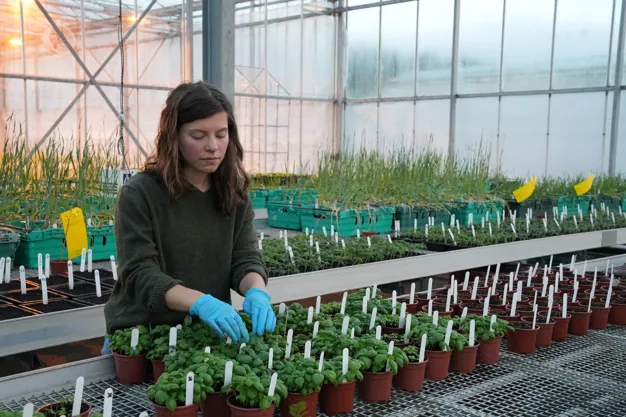Wormganix has partnered with CHAP (one of the Agri-Tech Centres) to deliver an Innovate UK EDGE-funded project running technical performance trials for their vermicompost- a multi-purpose fertilizer made of worm castings, setting a new standard for organic gardening and commercial agriculture alike. Already boasting successful nursery trials with large commercial growers, the product is proving to be a viable alternative to chemical fertilizers.
Wormganix manufactures 100% organically certified fertilizer in a commercial wormery in West Yorkshire using a unique bio-conservation method. The wormery is not only peat-free, but the worms themselves are kept as mini living processing plants turning waste streams into high-quality compost. Unlike similar setups that either sell the worms to the fishing industry, or wormeries that use peat, Wormganix focuses on casting quality. Remarkably, these castings are a ‘living’ product, teeming with beneficial microbes, fungi, and bacteria that are all essential for a healthy soil ecosystem.

High-quality composted forestry bark and recycled paper pulp are fed to worms which then transform this matter into rich, earthy vermicompost. The resulting product then undergoes a meticulous double-sieving process. It acts as a soil conditioner, designed to invigorate existing compost and create ‘living soil,’ rich in trace elements. Initial studies showed an increase in plant growth, improved soil aeration, enhanced moisture retention, natural pest resistance, and disease protection.
Inside one of Stockbridge Technology Centre’s (STC) glasshouses in Selby, performance trials are being conducted comparing the growth of basil from seed and tomato from transplants in different growing media- peat-based compost, peat-free compost and Wormganix fertilizer. Plants will be assessed for ten different parameters including size, color, vigor, and weight.
Looking forward, Wormganix is exploring innovative ways to incorporate recycled materials, such as paper pulp from Veolia (UK) Ltd and coffee grounds from Starbucks, into the wormery, enhancing the sustainability of the vermicomposting process. These efforts are part of larger trials with the UK’s largest compost manufacturers and the Royal Horticultural Society (RHS) on their peat-free transition project, showcasing the company’s role in shaping the future of eco-conscious agriculture.
For more information: CHAP
CHAP
enquiries@chap-solutions.co.uk
www.chap-solutions.co.uk
